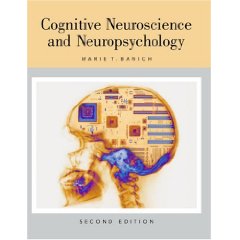About the topic
Bio
Get the Flyer
About the topic
Recently Dr. Banich co-authored with several American Psychological Association experts a fascinating review that addresses a question that can be stated bluntly: Why were 16 year old girls considered too immature to request an abortion without parental permission (Hodgson v. Minnesota, 1990), but 16 year old boys were mature enough to be executed for capital crimes (Roper v. Simmons, 2005)? The APA had authored briefs in these cases to the Supreme Court, both in support of the underage petitioners. But how can children be mature enough in the one case, and too immature in the other? This lead to accusations of inconsistency, flip-flopping, and even of liberal bias. But Dr. Banich’s reasoned discussion makes it clear that cognitive and psychosocial maturity are different things, developing at different rates, and paramount under differing circumstances. The implications of these studies for all of society are enormous. New techniques are allowing psychologists to peer closely into the brains of functioning humans, normal and abnormal, and see differences in processing which might translate to new and enlightened attitudes and treatments.
Bio
 Marie Banich, Ph.D., is a professor of Psychology at the University of Colorado at Boulder, where she also serves as director of the Institute of Cognitive Science, a multi-disciplinary institute dedicated to exploring the science of the mind. She also holds an appointment in the Department of Psychiatry at the University of Colorado at Denver. Her research specializes in using brain imaging techniques to understand the neural systems that allow us to direct our attention and our actions so that we can prioritize, organize, and target our behavior in a goal-oriented manner, abilities often referred to as executive function. She investigates these issues both in normal individuals as well clinical populations, such as individuals with attention-deficit/hyperactivity disorder and adolescents with severe substance and conduct problems. She also takes a developmental perspective, examining how executive functions mature during adolescence. Her research findings have been published in leading journals, including the journal Science. In addition, she is author of a textbook in Cognitive Neuroscience that is currently being revised for its third edition. Among her other professional experiences, Prof. Banich has been a member of the MacArthur Foundation on Adolescent Development and Juvenile Justice as well as a Fulbright Senior Scholar in Verona, Italy.
Marie Banich, Ph.D., is a professor of Psychology at the University of Colorado at Boulder, where she also serves as director of the Institute of Cognitive Science, a multi-disciplinary institute dedicated to exploring the science of the mind. She also holds an appointment in the Department of Psychiatry at the University of Colorado at Denver. Her research specializes in using brain imaging techniques to understand the neural systems that allow us to direct our attention and our actions so that we can prioritize, organize, and target our behavior in a goal-oriented manner, abilities often referred to as executive function. She investigates these issues both in normal individuals as well clinical populations, such as individuals with attention-deficit/hyperactivity disorder and adolescents with severe substance and conduct problems. She also takes a developmental perspective, examining how executive functions mature during adolescence. Her research findings have been published in leading journals, including the journal Science. In addition, she is author of a textbook in Cognitive Neuroscience that is currently being revised for its third edition. Among her other professional experiences, Prof. Banich has been a member of the MacArthur Foundation on Adolescent Development and Juvenile Justice as well as a Fulbright Senior Scholar in Verona, Italy.
You may browse Marie Banich's extensive writings here.
A major interest of Dr. Banich's is executive function, which can be thought of as the set of abilities required to effortfully guide behavior toward a goal, especially in nonroutine situations. Psychologists are interested in expanding the understanding of executive function because it is thought to be a key process in intelligent behavior, it is compromised in a variety of psychiatric and neurological disorders, it varies across the life span, and it affects performance in complicated environments, such as the cockpits of advanced aircraft. It is the ability that most declines with age, but is also often underdeveloped in adolescents, so that they make calamitous decisions even though they "know better." This relates directly to our Cafe topic. She has written a recent review of this topic, in which you may see how it can be evaluated by psychological testing in the laboratory.
She has written a standard textbook in cognitive science and is curently working on a new edition. 
